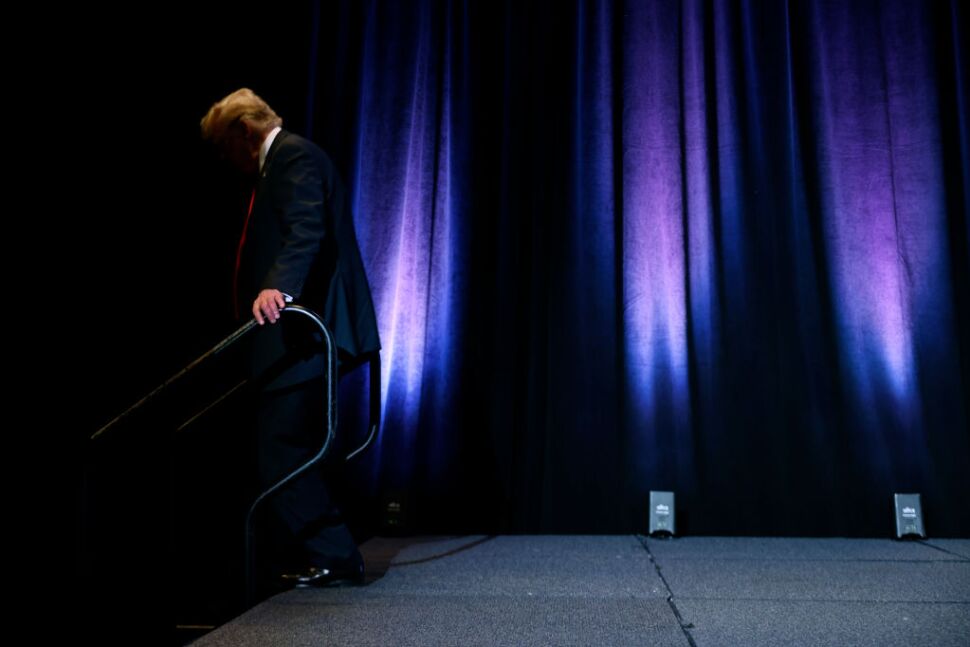Closing arguments are underway in former President Donald Trump's felony hush-money case. Over the course of nearly six weeks of trial, prosecutors from the Manhattan district attorney's office have built a substantial case against the former president, accusing him of falsifying business records to hide hush money payments to adult film actresses with whom he allegedly had extramarital affairs.
As a former federal prosecutor, I find the evidence that Trump orchestrated a conspiracy to hide his alleged affair from voters during the 2016 presidential election compelling. But this evidence alone will not determine how a jury will find Trump on the 34 felony charges he faces. If convicted, Trump could face prison time, but it is unlikely that a judge would order prison time for a nonviolent crime.
Federal criminal defendants rarely go to trial, but when they do, official statistics show that juries almost always find them guilty. But Trump is not a typical defendant, and this jury could find him not guilty of some or all of the charges. It is also possible that the jury could not reach a unanimous verdict, resulting in an acquittal.
This is not my prediction, it's just one possible outcome of a jury trial. If Trump is acquitted or there is a split verdict, that's fine regardless of how you feel about his innocence or guilt.
During my more than 20 years with the U.S. Department of Justice, I followed the standards mandated by the Department and only brought cases to court when I believed there was a reasonable likelihood of conviction and when there was substantial federal interest in the prosecution.
In the vast majority of cases I tried, the jury saw the case the way I did and voted guilty. Every once in a while, a jury would see it differently and vote not guilty, and that was fine.
That doesn't mean I was satisfied with the acquittals. I remember the rare acquittals far more vividly and painfully than I remember the many guilty verdicts. Two cases in particular still torment me because I believe the defendants were guilty. But if you believe in our justice system, and I do, you must accept the verdicts of juries, whether they convict or acquit.
Our justice system is imperfect. Every human endeavor is imperfect. We ask jurors to listen and to deliberate. We ask jurors to serve as the conscience of our community. We ask jurors to decide whether the defendant is guilty as charged. In effect, we give the jury the power. And we must live with that decision, whether we agree with it or not.
Remember, when a jury acquits, they are not declaring someone innocent. The defendant may interpret it that way, and the press may report it that way. But what a “not guilty” verdict usually means is that the jury believes the prosecution failed to meet a substantial burden of proof. An acquittal juror does not declare the defendant innocent, because that was not the question they were asked.
“Whatever the verdict, the former president should recognize the merits of our justice system and the important role of the jury. Unfortunately, Mr. Trump has consistently mocked the judge, the jury, and the conduct of this trial, claiming that the judicial process is unfair. His language is extremely irresponsible and false.”
Conscientious citizens must do better. We should accept the verdict and the outcome, whatever it may be. We don't have to like the verdict, but we should respect it.
Chuck Rosenberg is a former U.S. Attorney who served as a senior official in the Department of Justice under both Republican and Democratic administrations.



